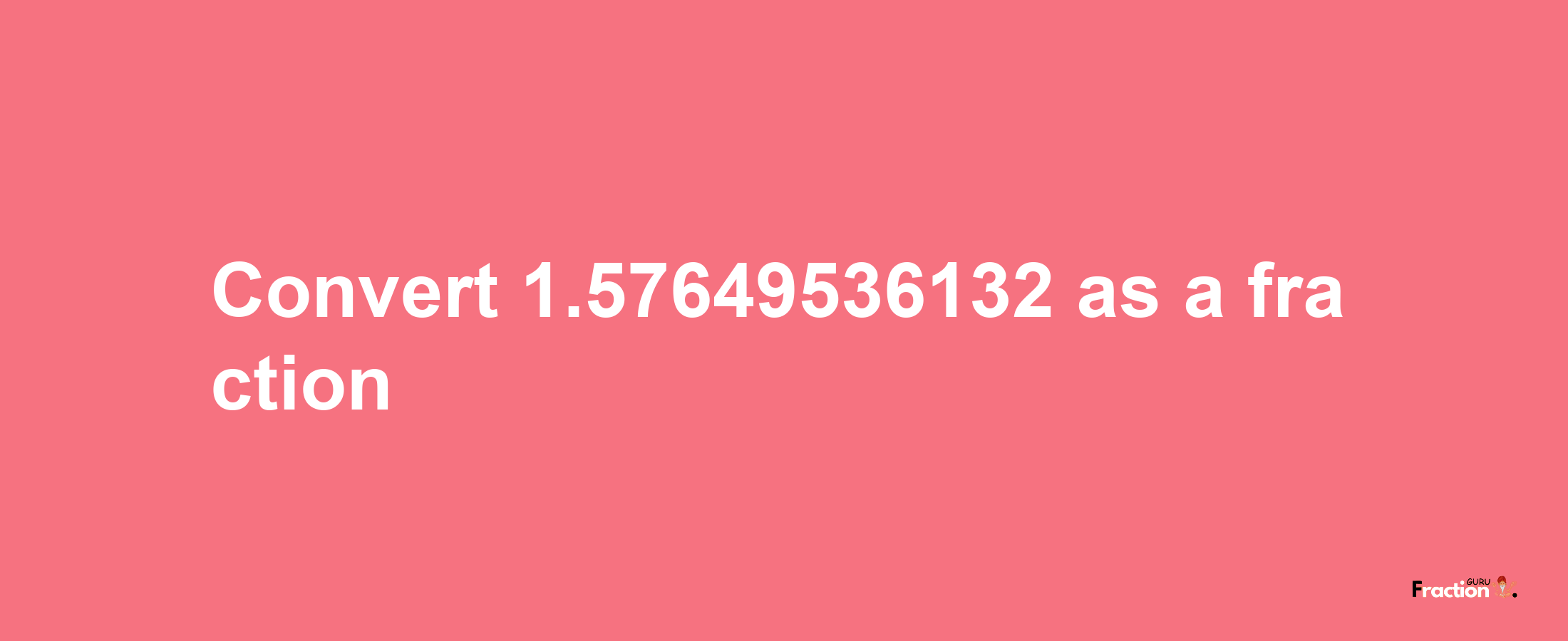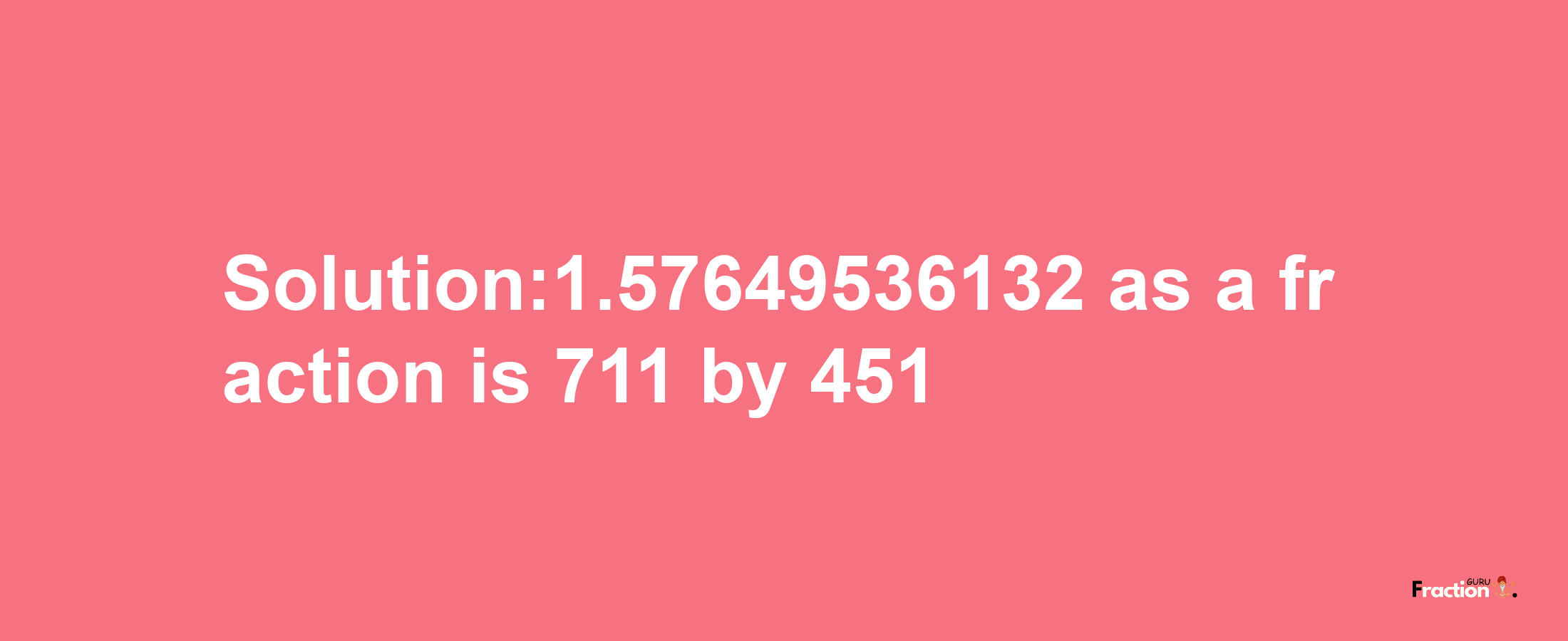Step 1:
The first step to converting 1.57649536132 to a fraction is to re-write 1.57649536132 in the form p/q where p and q are both positive integers. To start with, 1.57649536132 can be written as simply 1.57649536132/1 to technically be written as a fraction.
Step 2:
Next, we will count the number of fractional digits after the decimal point in 1.57649536132, which in this case is 11. For however many digits after the decimal point there are, we will multiply the numerator and denominator of 1.57649536132/1 each by 10 to the power of that many digits. So, in this case, we will multiply the numerator and denominator of 1.57649536132/1 each by 100000000000:
Step 3:
Now the last step is to simplify the fraction (if possible) by finding similar factors and cancelling them out, which leads to the following answer for 1.57649536132 as a fraction:
711/451 / 1


